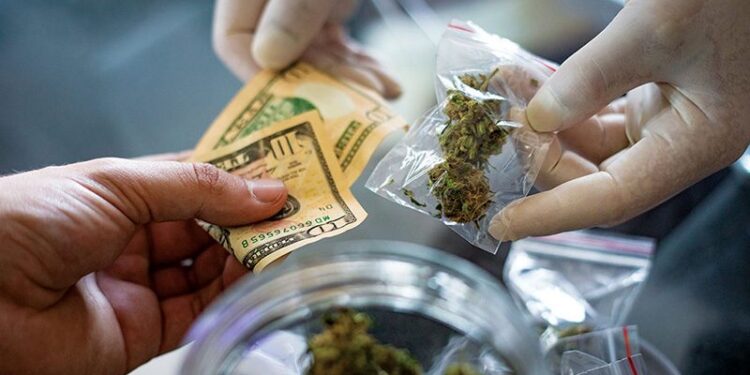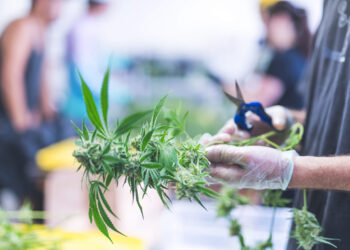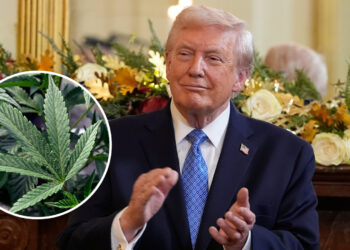As President Donald Trump’s shifting tariff policies roil global markets, cannabis companies and ancillary businesses across the U.S. are racing to adapt in real time, confronting rising costs, operational uncertainty, and a strained supply chain heavily reliant on foreign manufacturing.
Despite the Trump administration’s focus on revitalizing domestic production, the cannabis industry remains largely dependent on overseas suppliers for critical components like vape hardware, packaging, and pre-roll accessories. With key tariffs on Chinese goods spiking to 145% and a blanket 10% duty on all imports in effect since April 5, companies are now forced to rethink sourcing strategies to stay afloat.
“Technology to produce the vast volume of compliant packaging we need simply doesn’t exist domestically,” said John Hartsell, co-founder of packaging firm Dizpot. “We’re doing all we can not to push costs onto consumers, but it’s a tightrope.”
Custom Cones USA, a Renton, Washington-based packaging firm, relocated some operations to the U.S. but still relies on manufacturing in India and Indonesia for core products. Chinese-made equipment remains irreplaceable for now, even as tariffs hit hard. “If these tariffs remain, the cost of pre-rolls will inevitably rise,” said COO Fredrik Rading.
Other firms, like Ispire Technology, are redirecting production from China to Malaysia and pivoting toward pod-based vape systems to reduce long-term tariff exposure. “Pod systems provide value and environmental benefits while avoiding recurring tariff costs,” said Ispire’s VP of cannabis, Dennis Lider.
Downstream logistics providers such as Talaria, which recently expanded to Massachusetts, are feeling the pressure too. CEO Ari Raptis emphasized the need for operational precision: “Margins erode quickly without smart routing and supply diversification.”
While some, like Massachusetts-based ZZZ’s Collective, vow not to raise prices despite slimmer margins, others are preparing consumers for higher costs. “The consumer will feel the increase,” said George Sadler, CEO of Gelato Canna Co.
Worries about the broader economic impact are mounting. “If consumers have less disposable income, sales will decline regardless of our strategies,” said Story Cannabis CEO Jason Vedadi.
Industry leaders warn that if pricing pressure intensifies, more buyers could turn to the illicit market—a potentially damaging side effect of economic policy colliding with a young, still-fragile cannabis sector.
Read the whole article from MJBizDaily here.













